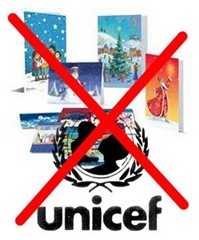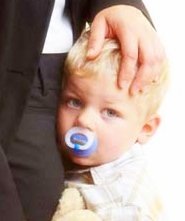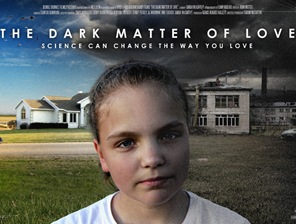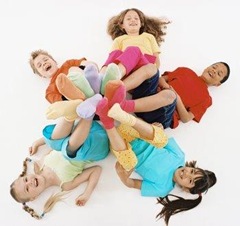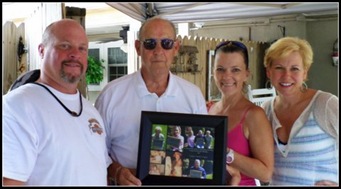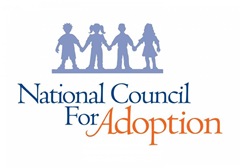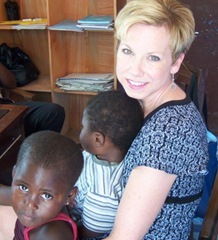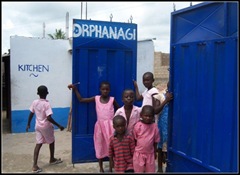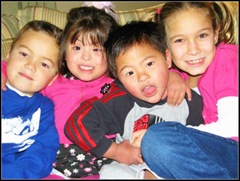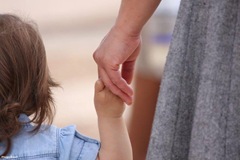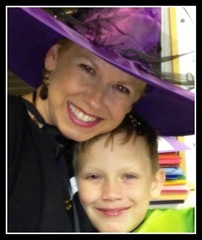Published April 2013 by Kris Faasse
Nicole Callahan, Editor
Chuck Johnson, Editor
Introduction: Factors that Can Influence How an Individual Deals with Loss
 One of the paradoxes of adoption is that, for all its potential benefits, it is nonetheless born of loss – including the losses that relinquishment represents for birthparents and birth families. For counselors working with expectant parents considering adoption and birthparents who have made an adoption decision, it is essential to understand grief and loss, what it looks like, and what can help.
One of the paradoxes of adoption is that, for all its potential benefits, it is nonetheless born of loss – including the losses that relinquishment represents for birthparents and birth families. For counselors working with expectant parents considering adoption and birthparents who have made an adoption decision, it is essential to understand grief and loss, what it looks like, and what can help.
It is difficult walking with anyone through a journey of grief. It is helpful for counselors to understand that grief is a process – not a single or brief event – that it cannot be rushed or hurried, and that it is highly personal and individual for those experiencing it. Recognizing that grief is unique, not only for each person but also for each situation, also helps counselors understand the complexities of this very natural emotion.
Knowledge of the various factors that can mitigate grief helps the counselor in turn help the client identify past experiences and patterns that could come into play. With that information, everyone is better prepared for the experience and expression of grief and loss that will inevitably come. Some of these factors may include:
The personality of the individual: While placing a child is a loss for any parent, not every parent who has chosen adoption will feel the same way about it. For some people, all emotions are felt strongly, and their feelings of loss may seem or appear greater because of an inherent intensity of emotion and the way it is expressed. Others hold emotions much closer and may be reluctant to share very personal thoughts and feelings. Some give voice to emotions; others express feelings through action.
Family norms: Families may experience and express emotions, including loss, very differently. Some families are more comfortable expressing strong emotions, while others may try to keep loss or grief “under control.” Questions a counselor should bear in mind include: How was the expectant parent raised? How do her parents, siblings, and other family members face or deal with loss?
Cultural norms: There may also be cultural norms affecting the experience of grief, so it is helpful to know, beyond the family, how do other groups to which this parent belongs express or experience grief? These groups might include a church, community, ethnic group, etc. Many different cultures have certain expectations and ways of experiencing loss and grief that can influence individuals as well.
How this loss is related to other life goals and experiences: A parent who has always wanted to be a mother and have children might feel a particular sense of loss if she makes an adoption plan, because of how the loss of this child ties in with her vision of her life, her goals, and her dreams. A parent who already has children may experience the loss somewhat differently, because she already knows the joys and challenges of being a parent. Approximately 70% of the mothers our agency works with who make adoption decisions are already parenting other children.
The prior losses a person has experienced: Prior losses, particularly those that are still fresh, have an impact on how we deal with a new loss. If someone has just experienced a significant loss of a loved one, and then has an unexpected pregnancy and perhaps the end of a relationship she thought would bring her solace and support, it complicates her ability to grieve the losses connected to an adoption decision. An expectant parent might also have had another loss in the past that was never fully reconciled, and is still fresh in many ways. If that is the case, imagining another loss – through adoption – makes hers a more complicated grief with multiple layers and multiple losses.
The Importance of Considering the Choice to Parent
Only about 25-30% of the women who come to our agency and speak with us ultimately make adoption plans. Many are simply looking for more information about adoption, so they can make an informed decision. Others seriously consider adoption, struggle with their decision, and choose another option instead. It is normal to wrestle with big decisions in life. Knowing that the struggle is natural and not necessarily a sign of a poor or wrong decision can be helpful to that expectant parent striving to make the choice that is right for her.
When I worked as a pregnancy counselor, I was often concerned if an expectant mother sought counseling to plan an adoption and did not seem to have considered parenting. She may have already done the hard work and decided that she was not ready to be a parent, but my concern was that she might also be refusing to think about parenting her child because, while she very much wanted to parent, she nonetheless felt that she “should” plan for adoption. Parenting seemed too overwhelming or impossible to consider. It was my experience that the expectant mothers most reluctant to talk about parenting were the ones most likely to change their minds about the adoption or have a less positive adoption experience.
In order to make a well-informed adoption decision, expectant parents must be able to explore what parenting their child might be like. By the time they seek counseling, some may have already considered it and decided that it is not best for them or for their baby. But others may be reluctant, as if considering parenting will make the decision about adoption too difficult. For a mother who is insisting on adoption as a kind of defense mechanism because she is afraid that she cannot follow through, it is important to introduce the idea of parenting gently, gradually, in order to have the kind of discussion that will best ensure a well-informed decision.
Early in the counseling relationship may not be the time to explore it, but eventually, most expectant parents that I worked with were willing to think about how they came to the decision that parenting was not the best choice. Questions I asked might include: “What if you changed your mind?” or “What if you get to a point during pregnancy, or after the birth, when you think about letting go of this baby and you just can’t do it?”
The relationship counselors have with their clients is so very important. Counselors must be able to handle the difficult emotions of their clients and walk alongside them in difficult places. The expectant parents I worked with needed to know that I cared about them as individuals, that they could trust me, and that I did not have an agenda. There is an art to counseling, and part of the art – an essential part – is knowing when and how to explore both parenting and adoption.
How Grief Manifests Itself
Counselors working with expectant parents considering adoption must know the different ways in which adoption-related grief can manifest itself, such as:
- Feelings: anger, sadness, loneliness
- The inability to feel; numbness
- Physical symptoms: anxiety, lack of energy, the incessant need to keep busy, hypersensitivity, tightness in the chest
- Cognitions: questioning and second-guessing, preoccupation, confusion
- Behaviors: Weeping, obsessive eating, lack of appetite, insomnia, social withdrawal (Worden, 2002)
Reconciling Loss, Not Resolving It
A person can never fully “resolve” a significant loss; we never achieve full and complete “closure” once we have experienced the loss of someone dearly loved. If you have experienced the loss of someone you loved very much, you know there is no point at which the sense of loss, of missing the person, is completely and totally gone.
What we can do, with help and support, is recognize that loss – and eventually reconcile it. Reconciling a loss means that a person comes to a place of acceptance. If I have reconciled my loss, I don’t think about it constantly; I am not expending as much of my energy in dealing with it; but that does not mean that it is ever completely gone. A birthparent who has relinquished her child can reconcile her loss, or adapt to it – but “resolving” her loss or grief, coming to the end of it, will not happen. Just as she will never forget the child she placed, she will never stop having days or events that make her think of her child and wonder. Reconciling herself to the loss means that she will be able to find a way to make peace with her decision and incorporate being a birthparent into her life and identity.
In Grief Counseling & Grief Therapy (2009), J. William Worden described four “tasks” of mourning:
- Accepting the reality of the loss
- Working through the pain of grief
- Adjusting to the new reality
- Emotionally relocating the loss; moving forward without forgetting the loss
As a parent begins to accept the reality of the loss, there are steps that can help in making the loss real. She might be helped by making a hospital plan, and talking about what it will be like when she leaves the hospital. Relinquishment documents, which should always be reviewed in advance, can help make the idea of relinquishment more concrete. Ultimately, she cannot face the pain of her loss until she accepts that it is happening – that it is real, and permanent.
Working through the pain of loss is different for every parent, due to the various mitigating factors mentioned earlier. This process is often described as the hardest part of mourning, with the most intense emotions – and is therefore the period that can lead to the greatest discomfort for those around her who bear witness to the grief. It is a necessary part of grieving to work through these strong emotions, whatever they may be, and a birthparent should never have to go through this alone. She needs people to listen, to grieve with her, to be her companions – walking with her, never rushing her.
When a parent who has placed a child for adoption adjusts to the reality of her loss and works through the intense emotions, she will gradually find that she is not thinking about her child every minute of every day, though of course she will still think of him or her. Those who have experienced a great loss talk about suddenly realizing that they laughed, or didn’t think of the loss at a particular time, and being surprised by that. There is still the sense of loss, but the intensity and frequency of the emotions of grief begin to lessen.
After the adoption takes place, a birthparent can establish an enduring connection to her child and her experience with adoption by weaving that loss into the fabric of who she is. She never forgets the loss, and revisits it at different developmental stages or milestones. But it is not with her in the same way that it was before. When she adapts to the loss, she can begin to reengage with other people and activities, and start the process of healing.
When we reconcile the losses we have suffered, that does not mean we have forgotten or been unchanged by them. It does not mean that we do not still think about or remember the one we loved and lost, or have triggers that bring it back to us and make us feel it sharply. Reconciling a loss means that we are able to find a place for it in our lives that is not all consuming. It is not with us all the time, and eventually, we are able to move forward.
What Practitioners Need to Know
Anticipatory grief – the process of knowing and in some ways trying to prepare emotionally for loss – is experienced by many expectant parents wrestling with the decision about the outcome of their pregnancy. An expectant parent who is considering placing a child and entrusting care of that child to someone else often experiences anticipatory grief. Just thinking about the planned or even considered loss can cause the expectant parent to experience some of the emotions, thoughts, or behaviors connected with grieving. It is similar to the experience of a family facing a loved one’s terminal illness or anticipating a dangerous military deployment. We look forward to a possible or definite loss and, in thinking and planning for the future without that person, experience the very real emotions that the loss will bring.
Parents considering adoption must be fully informed and empowered to make their own choices – for, at the end of the day, they are the ones who must live with that choice. At the same time, it is important for counselors to be open to whatever birthparents need or want to share, especially the difficult or “messy” emotions and experiences. As one birthmother said, “It was hard to continue to talk about it and have people willing to listen. I expected to move on. I didn’t expect it to be a lifelong process.”
If a parent senses that others do not understand her grief, or do not want to see it because they want her to simply be “fine,” she might deny or suppress the emotions for weeks, or months, or even years. When grief is disenfranchised, it cuts off the ability of parents to receive the understanding and support they need to process their loss. We should never communicate to birthmothers by our words or actions that their loss is not a loss; that they have no right to mourn. If we do that, we taking away crucial support when they need it most.
As parents begin to accept the reality of their loss and start to work through their grief, they can also find ways to adjust to the new reality as the pain begins to recede. Understanding signs of grief (listed above) also helps them recognize when these signs begin to occur less often. As one birthmother described it: “Grief is like waves that slowly get smaller and smaller and can no longer knock you down.”
Those working with expectant parents and birthparents must know how to recognize anticipatory grief, and understand that the adoption process often helps the loss become real to a mother. With that in mind, practitioners should help and encourage her to develop a hospital plan, review relinquishment documents well in advance, plan an entrustment ceremony with the adoptive family, and anticipate and plan for ongoing, comprehensive post-placement support.
The adoption process is an ongoing one that requires different types of services and support over time. The goal of pregnancy or adoption counseling is never to help a mother just until the end of her pregnancy and through relinquishment, or even to help place a child with adoptive parents – the goal must be to help and support all the individuals involved in an adoption, and work in their best interests.
What Adoptive Parents Need to Know
Issues of grief and loss experienced by parents considering adoption are not always well understood by prospective adoptive parents. When adoptive parents do understand it, when they feel empathy with the birthmother, it makes such a difference in the open adoption relationship.
Prospective adoptive parents who are able to connect with the losses and the grief process for birth families are often those who have wrestled with their own losses. They are better equipped to understand that the mother is not giving them a child to fulfill all their hopes and dreams of parenthood – she is making an enormous decision, a difficult one, because she believes it is best for her child.
After an adoption has taken place, adoptive parents must do all they can to honor the promises they made to the birth family, and be encouraged to be even more open and generous in those relationships than they had previously imagined. Open adoption is not a casual agreement. Even if it is not legally enforceable, it represents a promise, a covenant, with that birthmother or couple.
Sometimes, as in all relationships, birthparents and adoptive parents have trouble communicating. There can be misunderstandings or exchanges that leave one party, or all parties, feeling uncertain or upset. There are often ways we at the agency can help – and we should help – if these problems occur. Everyone can come in and sit down and talk about their expectations and their feelings about the relationship, and we can find a way to move forward with all relationships intact. These relationships – between original parents, adoptive parents, and adopted children and individuals – serve as the essence of domestic infant adoption today.
Conclusion: Summary of Recommendations for Practitioners
- Understand the grief process and accept that grieving the losses of relinquishment and adoption is natural and normal.
- Be prepared to walk alongside expectant parents, both mothers and fathers, in the messiness of strong emotions.
- Anticipatory grief can help with the first task of mourning – accepting the reality of the loss – so don’t be afraid to review detailed plans for after the birth.
- Help parents planning relinquishment to plan rituals to mark the transition, an important part of enfranchising grief.
- Help parents planning relinquishment to identify mementos and help to gather them, even if they don’t immediately feel ready for them. You can never go back and gather mementos, so do it when the birth and placement occur.
Kris Faasse is the Director of Adoption Services at Bethany Christian Services, headquartered in Grand Rapids, Michigan. Kris has spent much of her career working with women facing unplanned pregnancies, first as a pregnancy counselor and then as a program manager serving both expectant parents and adoptive families. Her current responsibilities include pregnancy counseling and domestic infant adoption programs; clinical issues in intercountry adoption; and post-adoption services, including Bethany’s ADOPTS program. She has conducted Infant Adoption Training Initiative trainings for both National Council For Adoption and the Spaulding Institute, and has led training sessions on a variety of topics in adoption, including grief and loss, agency/hospital partnerships, and safe haven programs. Kris has also authored a number of articles and consulted on various video projects to educate the general public about adoption issues. She holds both a BSW and MSW from Western Michigan University.
Bibliography
Boss, P. Ambiguous Loss. Cambridge: Harvard University Press, 1999.
Dischler, P. Because I Loved You. Madison: Goblin Fern Press, 2006.
Doka, K. Disenfranchised Grief. Champaign: Research Press, 2002.
Evan B. Donaldson Adoption Institute. Safeguarding the Rights and Well-Being of Birthparents in the Adoption Process. New York: Evan B. Donaldson Adoption Institute, 2006.
Gritter, J. Lifegivers. Washington, DC: CWLA Press, 2000.
Roles, P. Saying Goodbye to a Baby. Washington, DC: CWLA Press, 1989.
Romanchik, B. Birthparent Grief. Royal Oak: Insight, 1999.
Wheeler-Roy. Grief Counseling Resource Guide: A Field Manual. New York State Office of Mental Health, 2004. Retrieved from: http://www.omh.ny.gov/omhweb/grief/
Worden, J. W. Grief Counseling and Grief Therapy. New York: Springer Publishing, 2002.
Worden, J. W. Grief Counseling & Grief Therapy (updated). New York: Springer Publishing, 2009.
Source: www.adoptioncouncil.org
 We the Guatemala900, citing the importance of preserving the affective familial bonds that have been developed in the past 6+ years between children with pending adoptions in Guatemala and their corresponding US adoptive families, now believe that the Guatemalan government should immediately suspend current efforts to reunify the children with their biological families. In addition to honoring these longstanding bonds that the children have already obtained, we also believe the reunifications are inappropriate because they are riddled with coercive practices that pressure biological families to take custody of the children they willingly placed for adoption over half a decade ago.
We the Guatemala900, citing the importance of preserving the affective familial bonds that have been developed in the past 6+ years between children with pending adoptions in Guatemala and their corresponding US adoptive families, now believe that the Guatemalan government should immediately suspend current efforts to reunify the children with their biological families. In addition to honoring these longstanding bonds that the children have already obtained, we also believe the reunifications are inappropriate because they are riddled with coercive practices that pressure biological families to take custody of the children they willingly placed for adoption over half a decade ago. 
